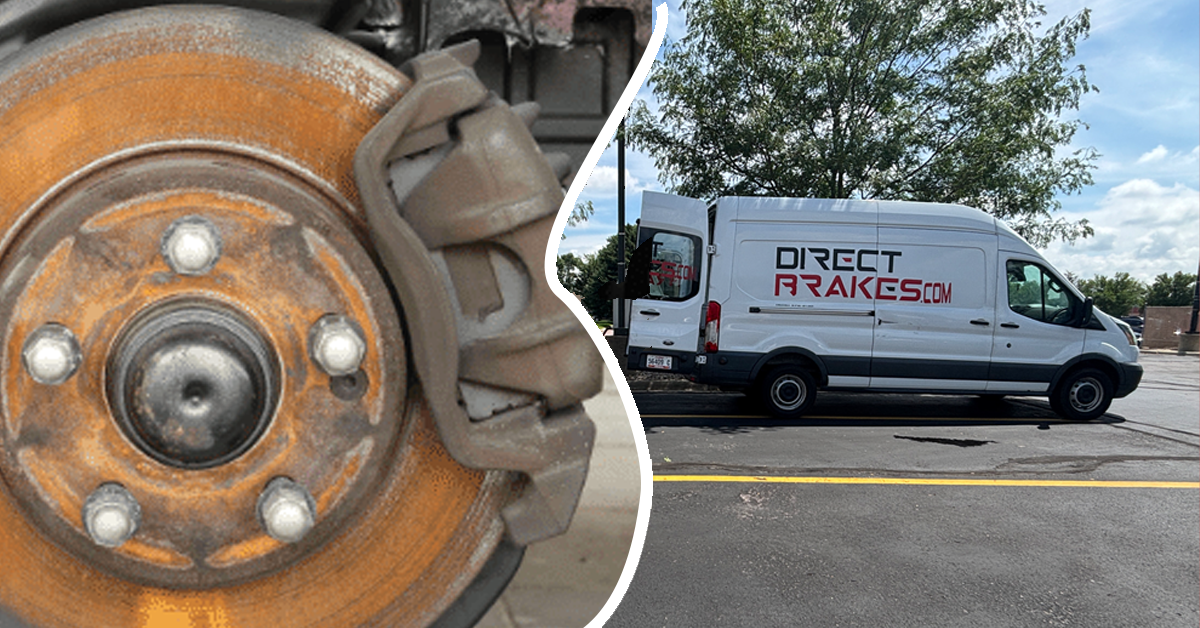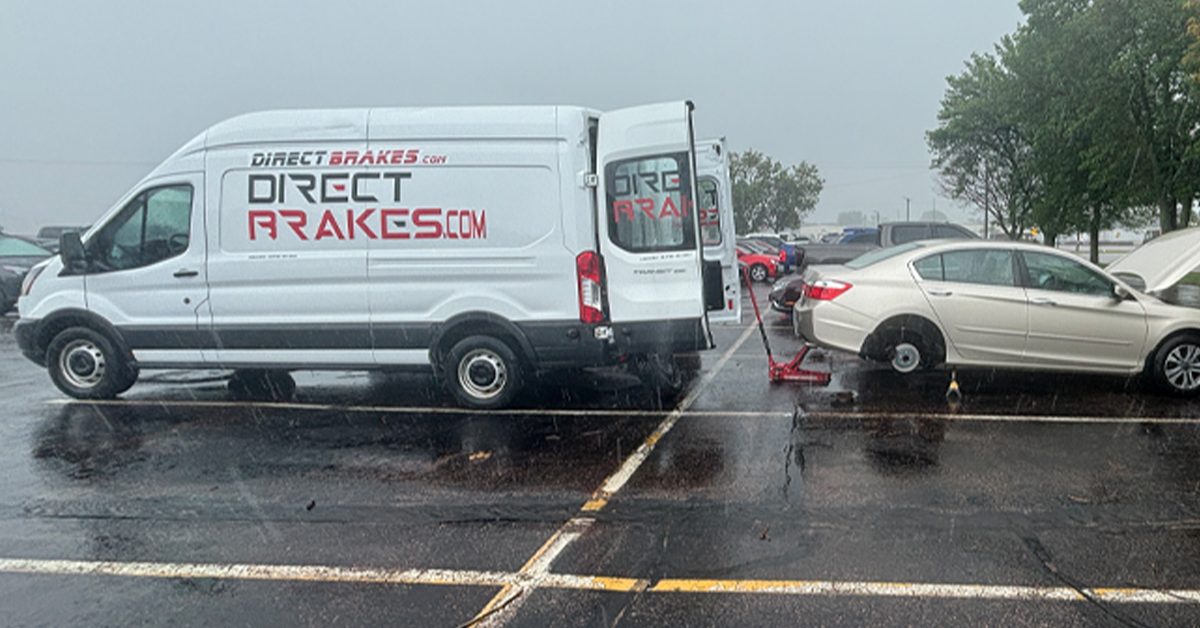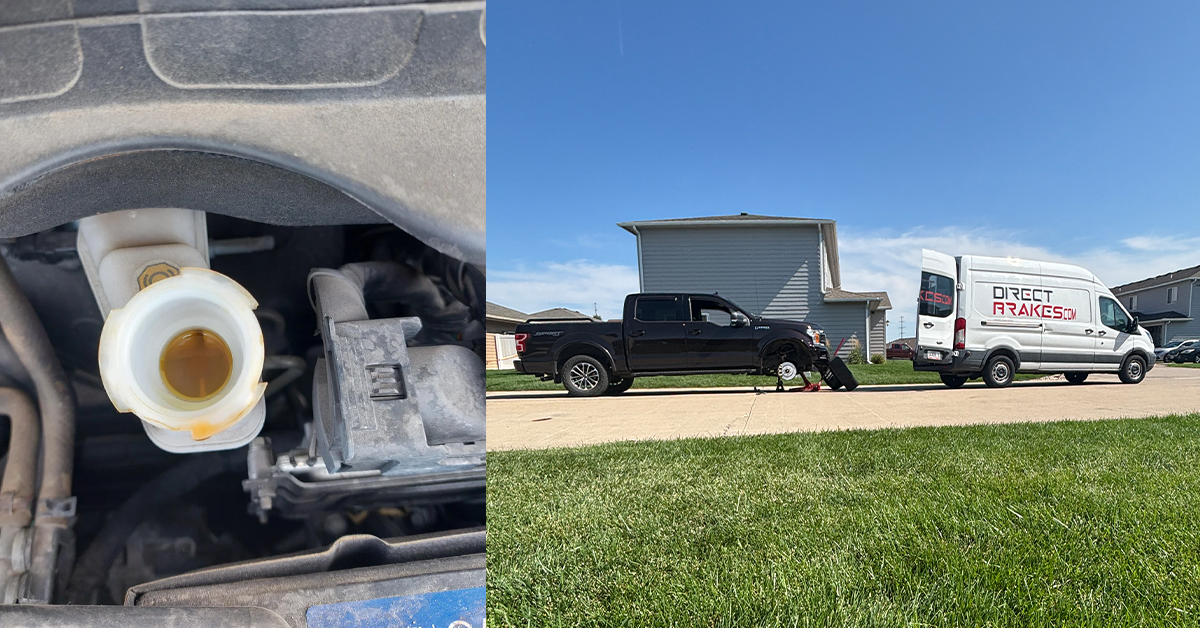More Than Just Brake Pads
A full brake service is like getting a complete physical for your car's stopping system. While most people think it's just about replacing worn pads, it's actually a comprehensive inspection and maintenance process that ensures every part of your braking system is working together properly.
Think of it this way: your brakes are a team, not individual players. When one part isn't performing correctly, it affects the whole system. A full service makes sure every team member is doing their job.

A full brake service involves inspecting and maintaining all these components, not just replacing pads
The Complete Brake Service Checklist
Here's exactly what happens during a professional full brake service, step by step:
Full Brake Service Components
Brake Pad Inspection & Replacement
We measure remaining pad thickness at all four wheels and replace pads that are worn beyond safe limits. This isn't just about thickness - we also check for uneven wear patterns that indicate other issues.
Rotor Assessment & Service
Using precision tools, we measure rotor thickness and check for warping, grooving, or heat spots. Rotors are either resurfaced to create a fresh, smooth surface or replaced if they're too thin or damaged.
Caliper Function Test
We check that calipers are applying even pressure and releasing properly. Sticking calipers can cause dragging, uneven pad wear, and reduced fuel efficiency. We lubricate slide pins and check for leaks.
Brake Fluid Inspection & Flush
We test brake fluid moisture content and condition. Old fluid absorbs water, which lowers boiling point and can cause brake fade. A complete flush removes old fluid and air bubbles from the system.
Brake Line & Hose Check
We inspect all brake lines and hoses for cracks, leaks, or damage. Rubber hoses can deteriorate over time, while steel lines can rust. Both can lead to brake failure if not addressed.
Hardware & Lubrication
We replace worn clips, springs, and anti-rattle hardware, then apply special high-temperature lubricant to contact points. This prevents noise and ensures smooth operation.

Precision measurement of rotors ensures they meet manufacturer specifications for safe operation
What Makes Full Service Different From Basic Replacement
It's Like a Physical vs. a Band-Aid
Think of basic pad replacement as putting a band-aid on a symptom, while a full brake service is like getting a complete physical exam for your car's stopping system. One addresses the immediate issue, while the other ensures everything is working together properly for the long term.
Brake Pad Replacement
The basics: We replace worn brake pads and do a quick visual check of other components.
What's Included
New brake pads installed, basic visual inspection, quick test drive to verify operation.
When It's Enough
When your pads are worn but everything else is in good condition, and you've had a comprehensive brake service within the last year or two.
What Might Be Missed
Early signs of rotor warping, sticking calipers, brake fluid contamination, or worn hardware that could cause problems down the road.
Full Brake Service
The complete package: We inspect, measure, and service every component of your braking system.
What's Included
Everything in basic replacement PLUS rotor measurement, caliper service, brake fluid testing, line inspection, hardware replacement, and comprehensive testing.
When You Need It
When it's been 2+ years since last service, you're experiencing braking issues, or you want complete peace of mind about your vehicle's safety.
Added Benefits
Catches small issues before they become big problems, extends the life of your brakes, ensures optimal performance, and provides complete system documentation.
The Real Difference in Practice
Full: Precision measurement with special tools
Full: Moisture content tested and flushed if needed
Full: Function tested, cleaned, and lubricated
Full: Worn clips and springs replaced automatically
Full: Comprehensive road test under various conditions
Which One Should You Choose?
If your brakes have been serviced recently and you're just dealing with worn pads, basic replacement might be sufficient. But if it's been a couple years or you're experiencing any braking issues, the full service is definitely worth the extra investment for the safety and peace of mind it provides.
Did You Know?
Brake fluid should be replaced every 2-3 years, regardless of mileage. Over time, it absorbs moisture from the air, which can lead to corrosion inside your brake system and reduced stopping power, especially in emergency situations.
Why Each Component Matters
It's All Connected
Your braking system works as a complete unit. When one part isn't functioning correctly, it affects everything else. Here's why each component in a full service is important:
- Properly machined rotors prevent vibration and pulsation when braking
- Freely moving calipers ensure even pad wear and consistent braking
- Fresh brake fluid maintains proper hydraulic pressure and prevents corrosion
- Good condition brake lines prevent leaks and maintain pressure
- Properly lubricated hardware prevents noise and sticking
The Domino Effect of Neglect
When you skip the comprehensive approach, small issues can turn into big problems:
- Worn hardware can cause pads to drag, reducing fuel economy
- Old brake fluid can damage expensive ABS components
- Uneven caliper pressure leads to premature pad wear on one side
- Warped rotors cause vibration that can be felt in the steering wheel
- Small fluid leaks can suddenly become complete brake failure

Testing brake fluid for moisture content is a critical part of a comprehensive brake service
When You Really Need a Full Brake Service
While regular maintenance is important, there are specific signs that indicate your vehicle needs more than just pad replacement:
Warning Signs You Need Full Service
- Steering wheel shakes when braking
- Brake pedal feels soft or spongy
- Car pulls to one side when braking
- Grinding, squealing, or scraping noises
- Brake warning light is illuminated
- It's been more than 2 years since last brake service
- You've noticed reduced stopping power
- Brake fluid appears dark or dirty
Money-Saving Insight
Getting a full brake service when you first notice issues can actually save you money in the long run. Addressing small problems early prevents them from damaging other, more expensive components down the road.
What to Expect From a Professional Service
A quality full brake service should include:
- Thorough inspection of all brake components
- Clear explanation of what needs repair and why
- Written estimate with options for different quality parts
- Precision measurements rather than visual guesses
- Test drive to verify repair quality
- Warranty on both parts and labor
Be wary of shops that recommend replacing everything without providing measurements or explanation. A trustworthy technician will show you exactly what's wrong and why it needs attention.
The Bottom Line
A full brake service isn't an upsell - it's proper maintenance for one of your vehicle's most critical safety systems. While it costs more upfront than just replacing pads, it ensures your entire braking system works together effectively and can prevent more expensive repairs down the road.
The peace of mind that comes from knowing your brakes have been thoroughly inspected and serviced is priceless. After all, when you need to stop, you need to stop - no questions asked.